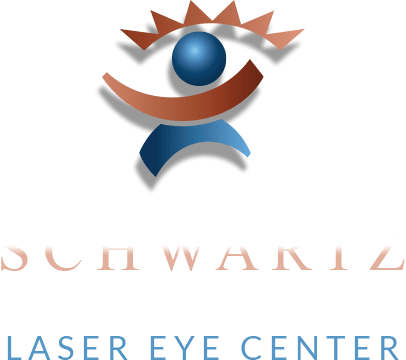Keep Your Eyes Safe from UV-Related Injuries in Winter
Posted on November 1, 2023 by Schwartz Laser - Photokeratitis

UV light can damage nearly all structures in the eye, which makes it necessary to shield them from the sun. However, many individuals believe that sun protection is only important in the summer months. The truth is that UV damage is still a risk in the winter. At Schwartz Laser Eye Center, Dr. Schwartz and his skilled team are all committed to keeping their patients’ eyes healthy. Ahead, they share some important tips for keeping your eyes safe from UV damage this winter.
UV-Related Eye Injuries
Without taking the proper precautions, eye injuries may result from UV exposure, including:
Photokeratitis: Photokeratitis is a painful eye condition that occurs after exposure to UV rays. It is often described as a corneal sunburn and is associated with symptoms such as eye discomfort, redness, swelling, and a foreign object sensation in the eyes. It may also lead to a temporary loss of vision. Symptoms tend to resolve after 24 hours, but prolonged exposure to UV light can result in more severe symptoms.
Pterygium: Also known as surfer’s eye, this condition occurs when a growth appears on the conjunctiva, which is the membrane covering the white area of the eye. It grows from the corner of the eye, spreads outward, and may even reach the cornea. Long-term UV light is the most common cause of this condition, but wind and dust may also be a factor. Those suffering from pterygium may experience symptoms such as blurry vision, grittiness in the eyes, dryness, or itchiness.
Cataracts: The cloudy areas that develop on the lens of the eye are known as cataracts. They occur when the proteins of the lens break down. Continuous exposure to UV light is a risk factor for the condition.
Sunglasses
Not all sunglasses provide the UV protection you need to keep your eyes healthy, especially older glasses. The most important factor to look out for when choosing a new pair of sunglasses is a conspicuous statement on the label indicating the level of UV protection. Keep in mind that the color of the glasses should not be a factor; for example, darker sunglasses do not block harsh rays that can lead to eye damage.
Avoid Being Outdoors at Certain Times
It is generally advised to avoid the sun between the hours of 10 am and 4 pm when its rays are strongest. Even on a cloudy or foggy day, UV rays can cause damage.
Hats
Hats are effective at protecting the skin on the face from the sun and they also are excellent at shielding the eyes from UV light. When used with sunglasses, they offer added protection.
Schedule an Appointment
Our team is eager to help you. Contact our office today to schedule your eye appointment.


